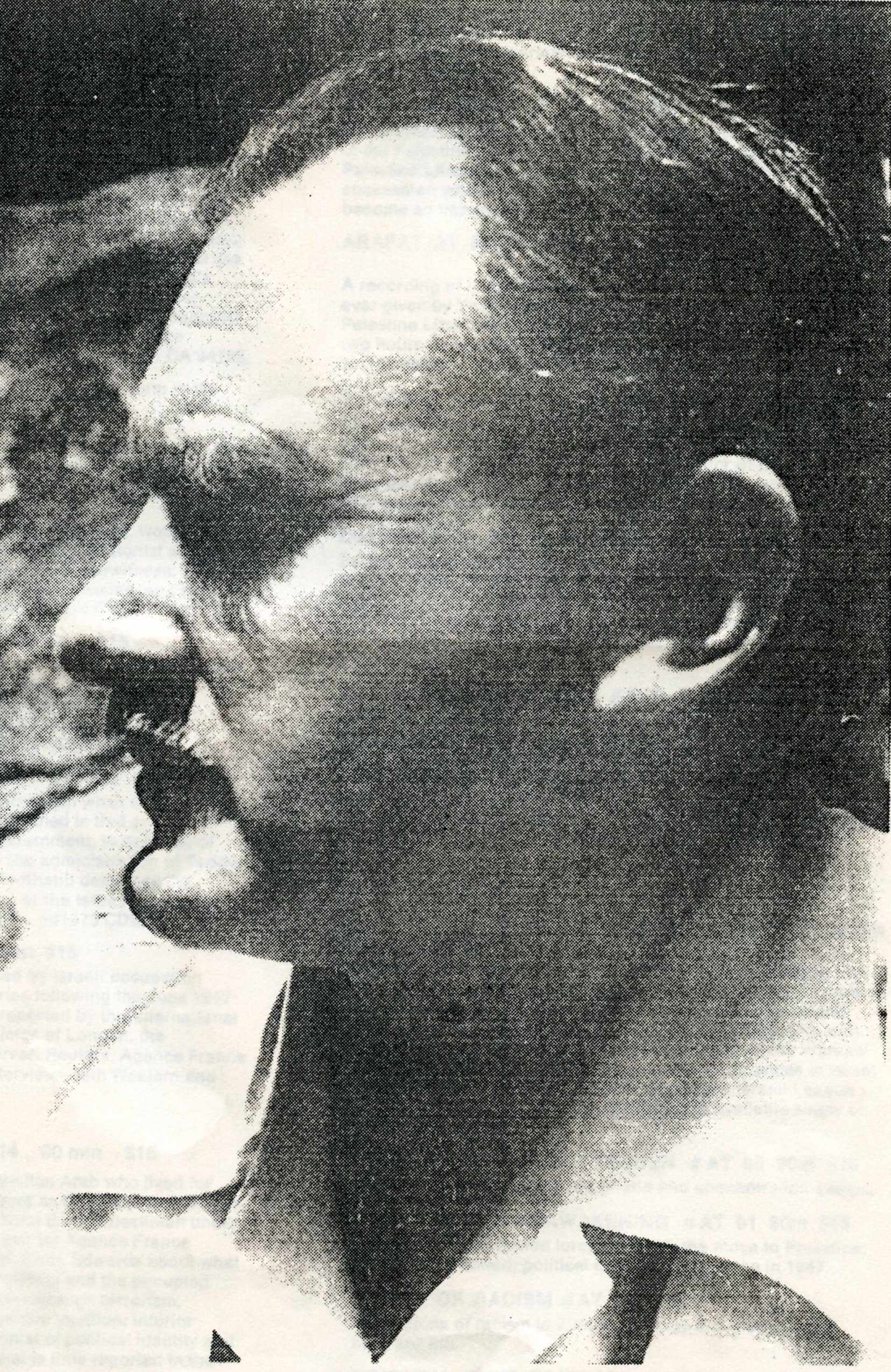Independent Collections
These collections were produced by independent journalists. Many of these recordings make up the bulk of the original collection of the Freedom Archives.
Subcollections
-
Colin Edwards Collection
Materials representing the life-work and journalism of a Welsh radio correspondent and journalist who worked for Pacifica stations, the BBC and many other broadcasters. -
Colin Edwards Free Speech Movement
This collection is produced by journalist Colin Edwards and represent a comprehensive account of the Free Speech Movement and its effect on the political climate of UC Berkeley. -
Programs produced by Kiilu Nyasha
Kiilu Nyasha is a revolutionary journalist and former member of the Black Panther Party. Kiilu still hosts Freedom Is A Constant Struggle, which now appears as a TV program. -
“Nothing is More Precious Than…” a news magazine including music and poetry
KPFA weekly news program running from 1973-1976 featuring in-depth coverage of liberation struggles around the world. -
“The Real Dragon” a news magazine including music and poetry
Real Dragon was a radio program broadcast on KPFA from 1971-1973. This news show focused on issues of national liberation, political prisoners, Vietnam and other major national and international topics.
Documents
7 Documents Found
Date: 1/1/1973Call Number: CE 013Format: CassetteProducers: Colin EdwardsCollection: Colin Edwards Collection
Moshe Menuhin reviews Arab-Israeli hostilities, comments on the Deir Yassin and Mount Scopus massacres, the assassination of Count Folke Bernadotte (Swedish UN mediator 1947-1948. assassinated by Zionist group Lehi), and the Israeli-French-British invasion of Egypt.
Date: 1/1/1973Call Number: CE 231Format: CassetteProducers: Colin EdwardsProgram: Moshe Menuhin ReminscesCollection: Colin Edwards Collection
Moshe Menuhin reviews Arab-Israeli hostilities, comments on the Deir Yassin and Mount Scopus massacres, the assassination of Count Folke Bernadotte (Swedish UN mediator 1947-1948. assassinated by Zionist group Lehi), and the Israeli-French-British invasion of Egypt.
Date: 7/1/1960Call Number: CE 299Format: 1/4 7 1/2 ipsProducers: Colin EdwardsCollection: Colin Edwards Collection
About the extradition of Adolf Eichmann from Argentina and his subsequent trial in Israel. Colonel Nash denies claims that Israel extradited him.
Also about the structure and policies of the Israeli police force and the Frontier Guard. Questions about Israeli police conducting electronic surveillance and the integration of Zionist terrorist groups from the British Mandate period into the official Israeli army and police forces.
Date: 7/1/1960Call Number: CE 300Format: 1/4 7 1/2 ipsProducers: Colin EdwardsCollection: Colin Edwards Collection
About the extradition of Adolf Eichmann from Argentina and his subsequent trial in Israel. Colonel Nash denies claims that Israel extradited him.
Also about the structure and policies of the Israeli police force and the Frontier Guard. Questions about Israeli police conducting electronic surveillance and the integration of Zionist terrorist groups from the British Mandate period into the official Israeli army and police forces.
Date: 7/1/1960Call Number: CE 301Format: 1/4 7 1/2 ipsProducers: Colin EdwardsCollection: Colin Edwards Collection
About the extradition of Adolf Eichmann from Argentina and his subsequent trial in Israel. Colonel Nash denies claims that Israel extradited him.
Also about the structure and policies of the Israeli police force and the Frontier Guard. Questions about Israeli police conducting electronic surveillance and the integration of Zionist terrorist groups from the British Mandate period into the official Israeli army and police forces.
Also on Israel's relations with Argentina.
Nancy Nolan Abu Haidar - Palestinians distinguish between Zionists and Jews and Al Fateh's operations as a clandestine organization.
Date: 4/30/1973Call Number: CE 334Format: 1/4 7 1/2 ipsProducers: Colin EdwardsCollection: Colin Edwards Collection
Editor of a monthly publication on Middle-Eastern affairs describes his work to organize with anti-Zionist Jews and Arabs struggling for justice in Palestine and against the occupation.
Discusses racism in Israel, the right for Palestinians to return to their homes, and the problems of a two-state solution.
Describes his imprisonment in Israel for publishing an article linking the Mossad to the disappearance of a Moroccan dissident in 1965.
Ghilan explains that democracy exists in Israel only for Jews and not Palestinians.
Date: 4/30/1973Call Number: CE 335Format: 1/4 7 1/2 ipsProducers: Colin EdwardsCollection: Colin Edwards Collection
Editor of a monthly publication on Middle-Eastern affairs describes his work to organize with anti-Zionist Jews and Arabs struggling for justice in Palestine and against the occupation.
Discusses racism in Israel, the right for Palestinians to return to their homes, and the problems of a two-state solution.
Describes his imprisonment in Israel for publishing an article linking the Mossad to the disappearance of a Moroccan dissident in 1965.
Ghilan explains that democracy exists in Israel only for Jews and not Palestinians.
7 Documents Found






